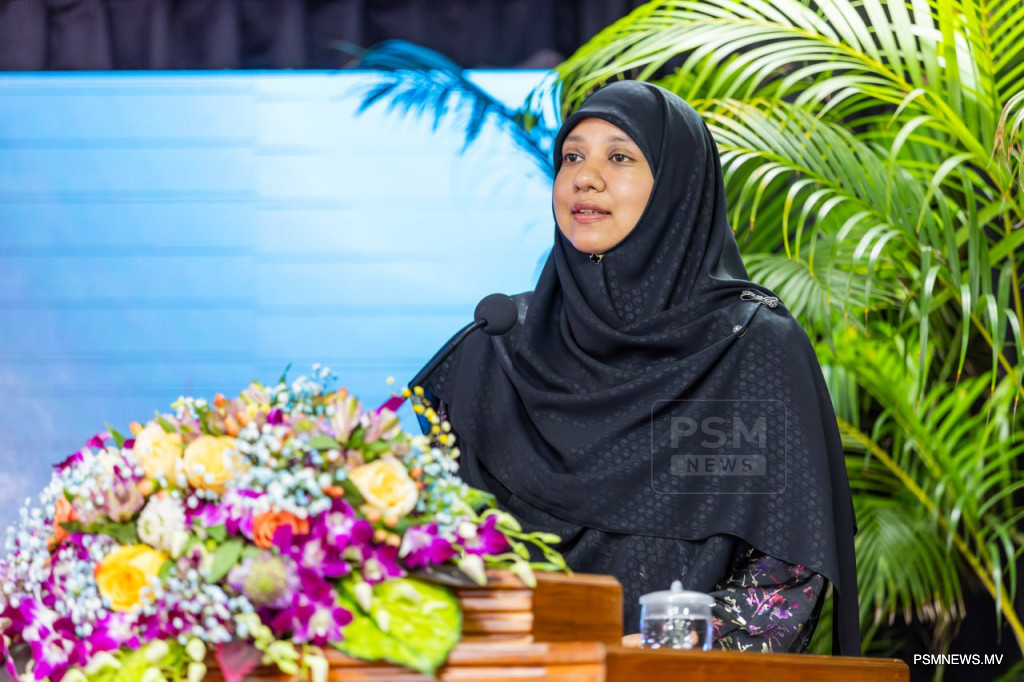
The government's proposed new Zakat Act will reduce the gap between the rich and the poor and establish social stability, Dr Aishath Muniza, Associate Dean of the International Center for Education in Islamic Finance University, Malaysia has said.
Speaking at the official inauguration of the Second International Zakat Conference (INZEC 2025) held on Saturday, Dr Muniza highlighted that the conference is being held at a time when the Maldives’ Parliament had begun deliberating on the government’s proposed new Zakat Act.
Dr Muniza stressed on the importance of reflecting on how zakat can be used in the most effective way as a means to sustainable development in a world of poverty and instability. She said people should be made aware of the difference between taxes and zakat and the benefits of zakat for the entire society.
Despite the existence of tax laws, Dr Muniza stressed on the need for a separate law for zakat because unlike taxes, zakat is a system prescribed in Islam that eradicates poverty, reduces the gap between rich and poor and establishes social harmony. She also said that the national development policy should include strengthening the zakat system.
"Zakat can change a person's life from poverty to wealth. Zakat should be used as a tool to eradicate poverty. Through this Zakat conference, we need to ask ourselves what can be done to develop the system?," she said.
Dr Muniza said the zakat system should be strengthened with new technological tools.
"The Internet of Things, IOT must be used to measure the poverty level of households in real-time and provide zakat to the most needy person,” she added.
In her speech she also highlighted the importance of raising awareness, beginning from the most fundamental aspects of the Zakat system.
Organised by the Maldives Zakat House, INZEC 2025 is designed to promote a sustainable and inclusive zakat framework in the Maldives. The conference brings together scholars, practitioners, policymakers, and community leaders to discuss strategies for advancing zakat administration as a powerful instrument for social welfare and economic resilience.
This year’s conference places special emphasis on the social dimensions of zakat and the digitalisation of zakat services, exploring innovative solutions for contemporary challenges. Sessions will address the evolving role of zakat within the digital and socio-economic context of the Maldives.
Participants include representatives from leading Maldivian institutions, as well as experts from Malaysian universities and organisations, with panels featuring renowned religious scholars, Islamic finance professionals, and economists.
